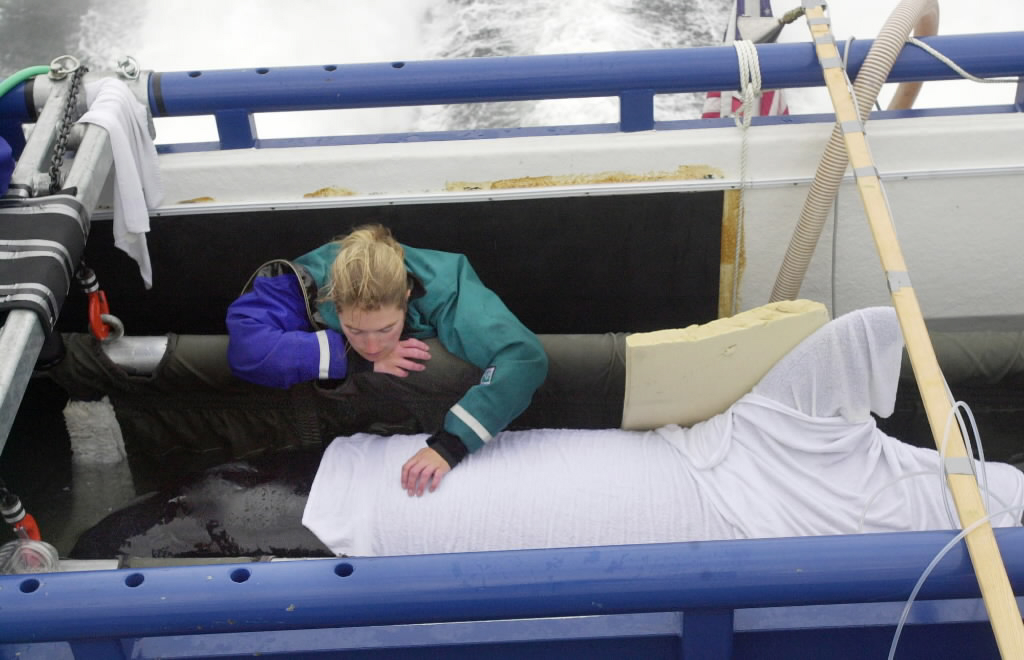SEATTLE — In a triumph thought to be the first of its kind, Springer, the orphan orca repatriated to her pod in 2002, is a mother, Canadian biologists reported Monday.
Spotted on a routine population survey in the waters off the central coast of British Columbia, Springer, also known as A-73, was seen Thursday accompanied by a calf, her first.
She apparently gave birth last winter, said John Ford, biologist with Fisheries Oceans Canada. The gender of the killer whale calf was not known, and it has not yet been named.
Only about 40 percent of orca newborns survive their first year. But it was hard even for experts not to become invested in this one from the start.
“I feel like a father,” said Graeme Ellis, biologist at Fisheries Oceans Canada who snapped the photo of Springer and her calf.
Springer, now 13, was captured near Vashon Island in 2002 after she was observed alone and hanging around ferries and boats. After she was fattened up in a net pen near Manchester, Wash., she was transported by high-speed catamaran to her home pod in B.C. and released.
Like Puget Sound’s southern resident killer whales, Springer, a member of the northern resident population, belongs to a close-knit society of orca family groups.
Returned to her home pod
Scientists knew from long-term population studies which pod she belonged to, so were able to return her to the right family.
“The social system these whales live in is so closed that if we could not get her back to her own pod, it is unlikely she would have been accepted,” Ford said.
That Springer, who was orphaned for a year, has given birth shows the return to her natal pod in Canada is a total success, Ford said.
“It is really a test of successful reintroduction that she has so fit into the social dynamics of the whole population.”
The rescue was a high-stakes operation, involving fisheries managers on both sides of the border, and numerous nonprofits. NOAA fisheries helped oversee the capture off Vashon, and the whale’s brief rehabilitation in the waters off Manchester after she was found to be emaciated.
Scientists reunited Springer with her family by tracking her natal pod, and placing Springer in the water to hear their calls, enunciated in the language particular to her family group.
Springer gave scientists concern when she was initially released back to her pod, Ford said, because she at first followed driftwood and boats, rather than her pod.
“When we released her she went in the opposite direction, to boats. We were a little disheartened,” Ford said. “But within a few days, she was tagging along and accepted, and fit right in.
“It gives us hope that if the circumstances are right, we could do the same kind of effort again.”



